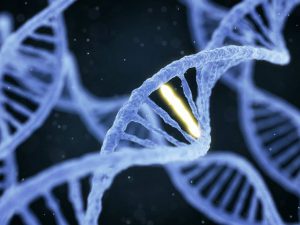Megan Skelton will outline findings from our recent paper “Self- reported medication use as an alternative phenotyping method for anxiety and depression in the UK Biobank”.
Research to date has consistently demonstrated that complex traits, such as anxiety and depression, are under the influence of a large number of differences in genetic code (DNA). These differences, or ‘variants’, each have a very small independent association with the trait and act in combination, along with environmental factors, to increase an individual’s likelihood of developing it. Anxiety and depression often co-occur in the same individual, and genetic studies indicate that they are largely under the influence of the same genetic variants. This suggests that we can study them in combination to identify variants that are relevant for both disorders. As you might expect, small effects are difficult to detect and so researchers need to ensure they have a large amount of statistical ‘power’ in their analysis. One of the best ways to achieve this power is through large sample sizes. However, it is rare to have large datasets with people who have provided their genetic and mental health information, and consented for it to be analysed for research purposes.
We were interested in alternate methods of identifying people with possible anxiety or depression, so that we can make use of existing large datasets without more detailed mental health information. This is a ‘minimal’ or ‘broad’ phenotyping method, an indication of the target trait that we hope, with a large enough sample, will approximate the trait closely enough to identify relevant genetic variants. This approach is not without criticism, but in a world of increasing access to electronic health records and big data, which may not always have specifically asked about anxiety or depression, it may be a pragmatic way of furthering our understanding of the genetics of these disorders.

In our study, we used information from participants in the UK Biobank who had self-reported their current medication use. There were 22,218 participants who reported taking an antidepressant or anxiolytic, and 168,959 controls who reported taking non-psychotropic medications. We called this trait ‘Medication Status’ and performed genome-wide association study with it. We then used the results to explore genetic overlap between this trait and three existing phenotypes of anxiety and depression. These existing phenotypes were from a UK Biobank study of the genetics of anxiety, a meta-analysis of depression studies and a combined anxiety-depression phenotype we created from symptom-based questionnaires in the UK Biobank. We excluded participants who had responded to the UK Biobank mental health questionnaire to keep our sample independent of the comparison samples. To further assess how useful the medication phenotype was, we also analysed a subset of Medication Status who additionally did not meet criteria for any other mental health indicator, and called this ‘Medication Only’.
We found significant genetic correlations between Medication Status and the comparison phenotypes, showing that the Medication Status trait was identifying many of the same genetic variants as more in-depth information about anxiety and depression. Also supporting this, polygenic scores created from the existing phenotypes of anxiety and depression significantly explained a small proportion of the variance in Medication Status. However, the Medication Only subset only demonstrated a correlation with the depression phenotype, and the polygenic scores explained smaller amounts of the variance. The results indicated that self-reported medication can offer an alternate or supplementary anxiety or depression phenotype for genetic studies, but only where diagnostic information is sparse or unavailable. Our sensitivity analyses suggested that these findings were not due to participants taking antidepressants or anxiolytics for physical health conditions often treated using these.
Read more about the genetics of depression from our previous blog posts:
Genetic discovery in depression
Read the full paper:
Skelton, M., Rayner, C., Purves, K. L., Coleman, J. R. I., Gaspar, H. A., Glanville, K. P., Hunjan, A. K., Hübel, C., Breen, G., & Eley, T. C. (2021). Self-reported medication use as an alternate phenotyping method for anxiety and depression in the UK Biobank. American Journal of Medical Genetics Part B: Neuropsychiatric Genetics, 1– 10. https://doi.org/10.1002/ajmg.b.32878
Acknowledgements
We would like to thank all individuals involved in UK Biobank, including the researchers, supporting organisations and of course all the participants who have made a vital contribution to improving health by sharing their experiences


